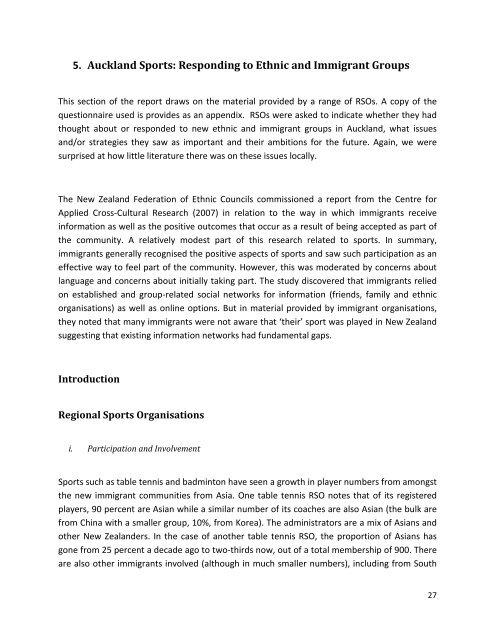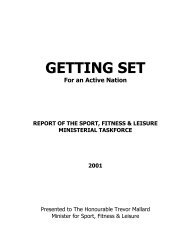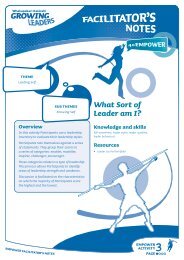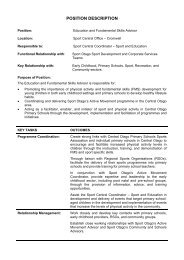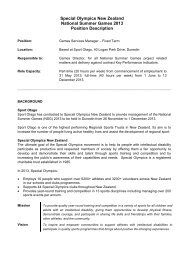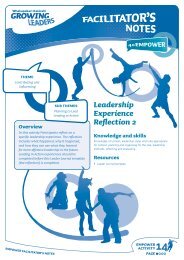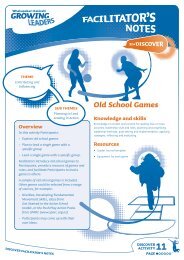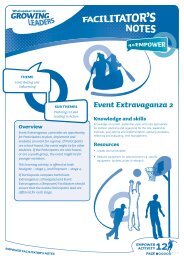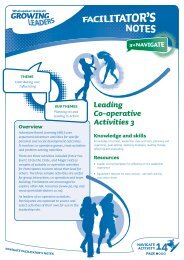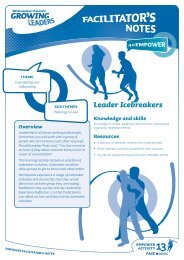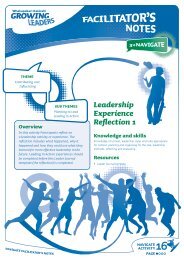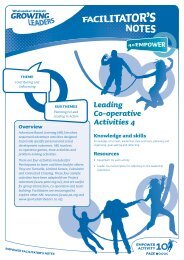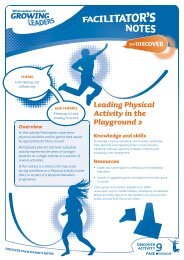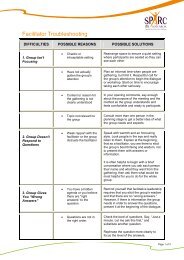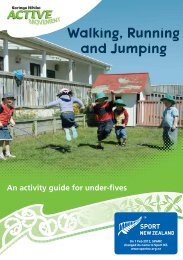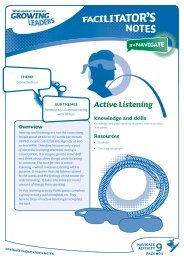sport and cultural diversity - Sport New Zealand
sport and cultural diversity - Sport New Zealand
sport and cultural diversity - Sport New Zealand
You also want an ePaper? Increase the reach of your titles
YUMPU automatically turns print PDFs into web optimized ePapers that Google loves.
5. Auckl<strong>and</strong> <strong>Sport</strong>s: Responding to Ethnic <strong>and</strong> Immigrant Groups<br />
This section of the report draws on the material provided by a range of RSOs. A copy of the<br />
questionnaire used is provides as an appendix. RSOs were asked to indicate whether they had<br />
thought about or responded to new ethnic <strong>and</strong> immigrant groups in Auckl<strong>and</strong>, what issues<br />
<strong>and</strong>/or strategies they saw as important <strong>and</strong> their ambitions for the future. Again, we were<br />
surprised at how little literature there was on these issues locally.<br />
The <strong>New</strong> Zeal<strong>and</strong> Federation of Ethnic Councils commissioned a report from the Centre for<br />
Applied Cross-Cultural Research (2007) in relation to the way in which immigrants receive<br />
information as well as the positive outcomes that occur as a result of being accepted as part of<br />
the community. A relatively modest part of this research related to <strong>sport</strong>s. In summary,<br />
immigrants generally recognised the positive aspects of <strong>sport</strong>s <strong>and</strong> saw such participation as an<br />
effective way to feel part of the community. However, this was moderated by concerns about<br />
language <strong>and</strong> concerns about initially taking part. The study discovered that immigrants relied<br />
on established <strong>and</strong> group-related social networks for information (friends, family <strong>and</strong> ethnic<br />
organisations) as well as online options. But in material provided by immigrant organisations,<br />
they noted that many immigrants were not aware that ‘their’ <strong>sport</strong> was played in <strong>New</strong> Zeal<strong>and</strong><br />
suggesting that existing information networks had fundamental gaps.<br />
Introduction<br />
Regional <strong>Sport</strong>s Organisations<br />
i. Participation <strong>and</strong> Involvement<br />
<strong>Sport</strong>s such as table tennis <strong>and</strong> badminton have seen a growth in player numbers from amongst<br />
the new immigrant communities from Asia. One table tennis RSO notes that of its registered<br />
players, 90 percent are Asian while a similar number of its coaches are also Asian (the bulk are<br />
from China with a smaller group, 10%, from Korea). The administrators are a mix of Asians <strong>and</strong><br />
other <strong>New</strong> Zeal<strong>and</strong>ers. In the case of another table tennis RSO, the proportion of Asians has<br />
gone from 25 percent a decade ago to two-thirds now, out of a total membership of 900. There<br />
are also other immigrants involved (although in much smaller numbers), including from South<br />
27


